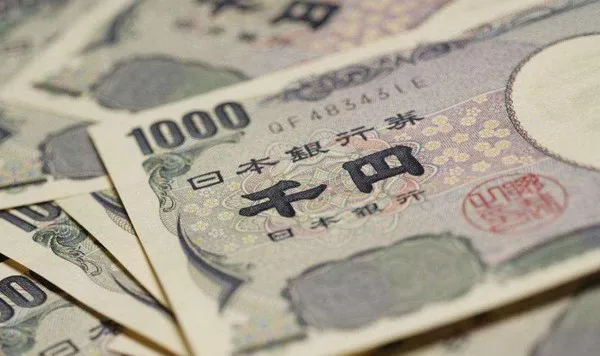The foreign exchange market is a complex arena where various factors influence the value of currencies. Traders, investors, and economists closely monitor these factors to understand why exchange rates fluctuate. In recent times, the GBP/JPY currency pair has witnessed a significant decline in its value, leaving many to wonder, “Why is GBP/JPY falling?” In this article, we will delve into the various factors contributing to this depreciation, shedding light on the economic, geopolitical, and market dynamics at play.
Economic Indicators and the GBP/JPY Exchange Rate
Economic indicators play a crucial role in determining the strength of a currency. A nation’s economic performance is often reflected in its currency’s value. In the case of GBP/JPY, both the British pound (GBP) and the Japanese yen (JPY) are subject to economic indicators specific to their respective countries.
Why is GBP/JPY falling? The answer lies, in part, with the economic performance of the United Kingdom and Japan. When the UK’s economic indicators, such as GDP growth, employment rates, and inflation, underperform, it can lead to a weaker pound. Similarly, economic challenges in Japan, such as deflationary pressures and sluggish growth, can affect the yen’s value. A combination of these factors can contribute to a falling GBP/JPY exchange rate.
Monetary Policy and Central Bank Actions
Central banks have a significant influence on their respective currencies through their monetary policies. They can adjust interest rates, implement quantitative easing measures, and intervene in currency markets to stabilize or influence their currency’s value.
Why is GBP/JPY falling? Central bank policies in both the UK and Japan play a role in this phenomenon. When the Bank of England (BoE) lowers interest rates or engages in quantitative easing, it can weaken the pound, making it less attractive to investors. Likewise, the Bank of Japan (BoJ) can use similar tools to control the value of the yen. The interplay between these central banks’ policies can lead to fluctuations in the GBP/JPY exchange rate.
Trade Balances and Exchange Rates
Trade balances, or the difference between a country’s exports and imports, can also impact exchange rates. When a country has a trade surplus (exports exceed imports), its currency tends to appreciate. Conversely, a trade deficit (imports surpass exports) can lead to a depreciating currency.
Why is GBP/JPY falling? It’s essential to consider the trade balances of the UK and Japan. The UK has experienced trade deficits in recent years, which can put downward pressure on the pound. Japan, on the other hand, often maintains a trade surplus, which should theoretically support the yen. However, other factors can offset these trade balance effects, contributing to the depreciation of GBP/JPY.
Geopolitical Events and Market Sentiment
Geopolitical events can have a profound impact on currency markets. Uncertainty and instability in global politics can lead to increased market volatility and risk aversion, which can, in turn, affect currency exchange rates.
Why is GBP/JPY falling? Geopolitical events, such as Brexit in the UK and tensions in the Asia-Pacific region, have created an atmosphere of uncertainty. Investors may seek safe-haven currencies like the Japanese yen during times of geopolitical turmoil, leading to a stronger yen and a weaker pound. Market sentiment, influenced by these events, can significantly impact the GBP/JPY exchange rate.
Speculation and Forex Market Dynamics
The foreign exchange market is characterized by speculative trading, where traders buy and sell currencies based on their expectations of future price movements. These speculators can influence short-term fluctuations in exchange rates.
Why is GBP/JPY falling? Speculation plays a role as traders react to economic data releases, central bank statements, and geopolitical developments. If a large number of traders anticipate a weaker GBP or a stronger JPY, it can lead to selling pressure on GBP/JPY, causing it to fall.
Risk-On vs. Risk-Off Sentiment
Investor sentiment often shifts between “risk-on” and “risk-off” modes. During risk-on periods, investors are more willing to take on riskier assets, while during risk-off periods, they seek safety in less risky investments.
Why is GBP/JPY falling? Shifts in risk sentiment can impact the GBP/JPY exchange rate. For instance, during times of heightened risk aversion, investors may sell GBP and buy JPY, as the latter is perceived as a safe-haven currency. This can contribute to a fall in the GBP/JPY exchange rate.
Technical Factors and Trading Strategies
Technical analysis, which involves studying historical price charts and patterns, is another aspect of forex trading that can influence exchange rates. Traders often use technical indicators and chart patterns to make trading decisions.
Why is GBP/JPY falling? Technical factors, such as support and resistance levels, moving averages, and trendlines, can influence trading strategies. When technical signals align with fundamental factors, it can lead to significant movements in the GBP/JPY exchange rate.
Conclusion
The depreciation of the GBP/JPY exchange rate is a complex phenomenon influenced by a multitude of factors. Economic indicators, central bank policies, trade balances, geopolitical events, market sentiment, speculation, risk sentiment, and technical factors all contribute to the exchange rate’s fluctuations. Understanding why GBP/JPY is falling requires a comprehensive analysis of these interconnected elements. Traders, investors, and policymakers alike must consider these factors to make informed decisions in the dynamic world of forex trading.
Related Topics:
How Much is 1 Million Yen in Australian Dollars?
The Value of 1000 Yen in Australian Dollars
Japanese Yen (JPY) as a Reserve Currency: What’s Its Global Significance



























